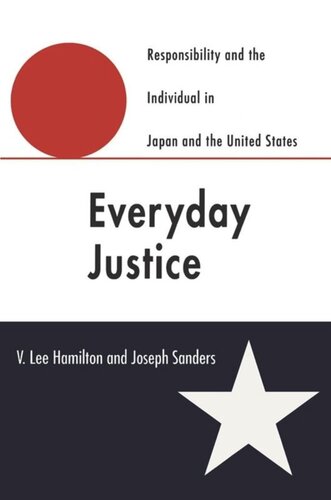

Most ebook files are in PDF format, so you can easily read them using various software such as Foxit Reader or directly on the Google Chrome browser.
Some ebook files are released by publishers in other formats such as .awz, .mobi, .epub, .fb2, etc. You may need to install specific software to read these formats on mobile/PC, such as Calibre.
Please read the tutorial at this link: https://ebookbell.com/faq
We offer FREE conversion to the popular formats you request; however, this may take some time. Therefore, right after payment, please email us, and we will try to provide the service as quickly as possible.
For some exceptional file formats or broken links (if any), please refrain from opening any disputes. Instead, email us first, and we will try to assist within a maximum of 6 hours.
EbookBell Team

5.0
110 reviewsIt is a fundamental human impulse to seek restitution or retribution when a wrong is done, yet individuals and societies assess responsibility and allocate punishment for wrongdoing in different ways. This book investigates how average citizens in the United States and Japan think about and judge various kinds of wrongdoing, how they determine who is responsible when things go wrong, and how they prefer to punish offenders.
Drawing on the results of surveys they conducted in Detroit, Michigan, and Yokohama and Kanazawa, Japan, the authors compare both individual and cultural reactions to wrongdoing. They find that decisions about justice are influenced by whether or not there seems to be a social relationship between the offender and victim: the American tendency is to see actors in isolation while the Japanese tendency is to see them in relation to others. The Japanese, who emphasize the importance of role obligations and social ties, mete out punishment with the goal of restoring the offender to the social network. Americans, who acknowledge fewer ties that bind” and have firmer convictions that evil resides in individuals, punish wrongdoers by isolating them from the community. The authors explore the implications of justice among friends” versus justice towards strangers” as approaches to the righting of wrongs in modern society. Their findings will be of interest to students of social psychology, the sociology of law, and Japanese studies.